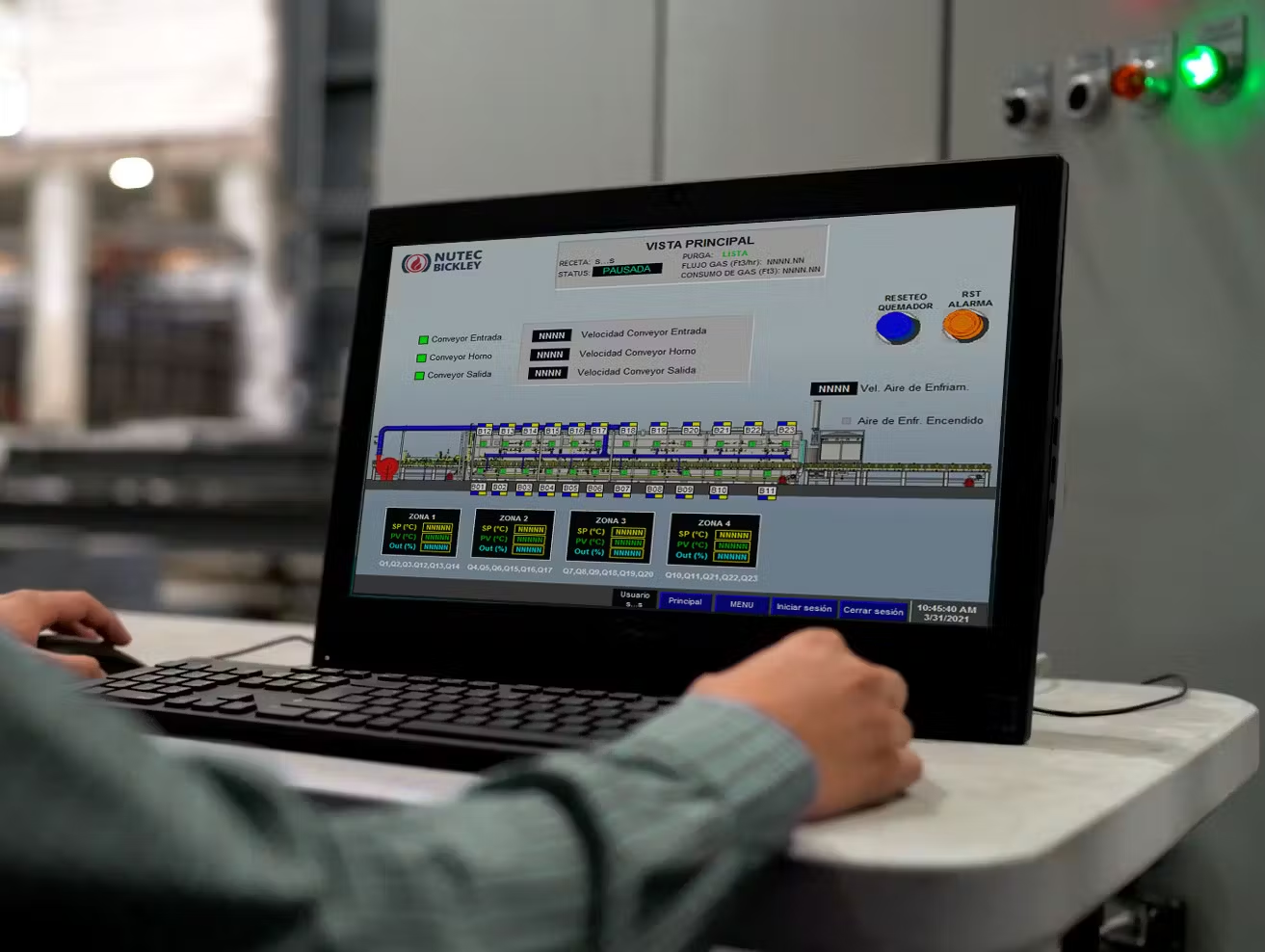In a major, high-value project – the second at this particular plant in Mexico – NUTEC Bickley will supply a 125m-long tunnel kiln to one of the world’s leading advanced ceramics manufacturers.
Understanding the components of Fuel Trains (NFPA 86 standards considered)
A fuel train system is comprised of several key components, each playing a specific role according to NFPA 86 standards for gas-fired equipment:
Gas Shut-Off Valve: Located at the beginning of the fuel train, this manual valve allows for complete isolation of the gas supply for maintenance or in response to emergencies.
Gas Filter: This component removes debris or contaminants from the stream, protecting downstream equipment.
Pressure Regulator: The pressure regulator reduces the incoming gas pressure from the main supply to the pressure required by the burner for efficient combustion.
Gas valve with safety shutoff: This automatic safety valve shuts off the gas supply in case of a pressure drop or other safety concerns.
Low/High Pressure Switch: Both switches are interlocked into the combustion safety circuitry. The settings are made in accordance with the operating limits of the burner system.
Gas Meter (Optional): This device measures the volume of gas consumed, allowing for monitoring and optimizing fuel usage.
Pilot Fuel Train (Optional for specific burner applications): Some burner systems may require a separate fuel train specifically for the pilot flame ignition. This train would include a shut-off valve, regulator, and safety shut-off valve sized for the pilot burner requirements.
Burner: The burner is where the gas and air mix for combustion. The design and configuration of the burner play a crucial role in achieving efficient and complete combustion of the fuel.

















